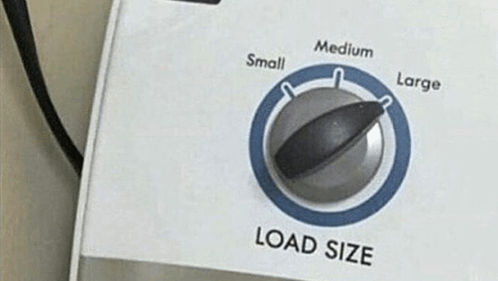
And doctors think it’s perfectly normal
Unsubscribe | Report as spam | Change email preferences
Story-At-a-Glance
Hey, Matt Cook here, and even though doctors mean well, sometimes they get it wrong…
Very wrong.
For decades now they’ve been giving men completely false information about the thyroid…
…and it’s been devastating to men’s health and stress levels.
Here’s how you should be taking care of your thyroid instead…
—-Important Message from —-
Why would a man want bigger loads?
Maybe you’re wondering why a guy should care about his load size…
Maybe you think it makes no difference to your intimate life…
But here’s the thing — I’ve discovered something HUGE about load size…
Not only do women prefer when a guy shoots a monster load, it comes with a really pleasurable benefit for men…
You see, when a man is shooting a bigger load, it produces a much more powerful O.
The release lasts for longer, it feels more pleasurable, and it’s bound to delight your woman and make her feel like a Queen in bed!
So why not boost your load size? It’s as easy as eating a few of these 6 foods…
———-
Is your thyroid making you stressed?
Cortisol is a multifaceted hormone. It’s essential for helping to control things like blood sugar.
But chronically elevated cortisol causes massive degenerative changes in the body.
The chronic elevation of cortisol is a major factor in obesity, type 2 diabetes, low testosterone, and poor rockiness…
…just to name a few.
The thyroid hormone is one of the most important hormones in the body…
…and suboptimal thyroid hormones cause great stress to the body.
Human research has shown that even slightly abnormal thyroid hormone labs are associated with elevated cortisol.
I cannot overstate the importance of having complete thyroid hormone labs – and correcting even the smallest abnormality in those results.
The research was carried out at The Pennsylvania State University. The findings were published in Thyroid Research.
The study focused on something called subclinical hypothyroidism.
This is where the thyroid hormone levels are within the normal range but TSH labs are elevated.
TSH is a hormone which stimulates the production and release of thyroid hormones.
High levels of TSH are a marker of low thyroid function.
There is quite a lot of debate about what the upper healthy level of TSH should be.
Many healthcare professionals used to agree that anything below 10.0 was fine.
These days there’s a lot of consensus that anything above 4.5 or 5.0 is a problem.
The best research points toward 2.0 being the upper healthy limit for TSH.
“Recent attention has been given to subclinical hypothyroidism, defined as an elevation of TSH with normal T3 and T4 hormone levels.”
These researchers wanted to see at what point abnormalities in cortisol occurred in relation to rising TSH levels.
The researchers recruited 54 healthy, young men and women for their study.
The researchers took blood samples from all the participants. The blood samples were analyzed for thyroid hormones, TSH, and cortisol.
Almost all of the participants had thyroid hormone levels within the normal range.
“All but one participant had free T3 levels within the normal range. Free T4 was normal in all participants.”
The researchers found a strong overall relationship between TSH and cortisol levels.
The higher the TSH, the higher the cortisol was.
“TSH levels between 0.5 and 10 were significantly positively correlated with cortisol levels.”
The researchers used 4.5 as the “normal” upper cut off point for TSH.
But they found that the relationship between cortisol and TSH held true even below 4.5.
“This positive TSH-cortisol relationship was maintained below the accepted 4.5 subclinical hypothyroid cutoff point for TSH.”
It’s implied that TSH, even within the “normal” range, may be driving abnormally high cortisol.
The researchers carried out a number of different analyses.
They would drop the “normal” TSH levels by 0.5 and see where the relationship between cortisol and TSH disappeared.
This analysis showed that TSH was associated with higher cortisol down to a TSH of 2.0.
“The TSH-cortisol relationship was maintained for TSH levels down to 2.0.”
This means that people with the TSH between 2.0 and 5.0 may be considered normal in terms of thyroid…
…but this high level of TSH may be causing high cortisol.
This research – and many other high-quality studies – imply that the higher cut-off range for TSH should not be 10.0 or even 5.0.
The upper limit for TSH should be around 2.0.
Above this is where we find ill-health and dysregulation in cortisol and other hormones.
“These preliminary results suggested that TSH levels above 2.0 may be abnormal.”
The cut off point for TSH has crept down over the years. I believe it will continue to creep down until it reaches about 2.0.
The initial figure of 10.0 is a cut off TSH was based on some very dodgy science…
…and it’s something that has caused a lot of pain and suffering for people with thyroid problems which are ignored.
—-Important Message—-
Men: how to protect yourself from toxic toilet paper
I’ve discovered a toxic chemical hiding in 80% of all toilet paper brands on the market.
And if you think you’re safe because you’re using a “greener,” more eco-friendly toilet paper…think again…
Because this one toxic chemical is even more rampant in the so-called “eco friendly” toilet paper brands.
So please, do me a favor and check this out —
———-



